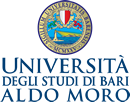INFLUENCE OF HOST-PLANT PHYSICAL DEFENCES ON THE SEARCHING BEHAVIOUR AND EFFICACY OF TWO COCCINELLID PREDATORS OF THE OBSCURE MEALYBUG, PSEUDOCOCCUS VIBURNI (SIGNORET)
DOI:
https://doi.org/10.15162/0425-1016/864Abstract
INFLUENCE OF HOST-PLANT PHYSICAL DEFENCES ON THE SEARCHING BEHAVIOUR AND EFFICACY OF TWO
COCCINELLID PREDATORS OF THE OBSCURE MEALYBUG, PSEUDOCOCCUS VIBURNI (SIGNORET).
Laboratory and glasshouse trials were conducted to investigate the influence of host-plant physical structure on the predation of the obscure mealybug, Pseudococcus viburni (Signoret) (Coccoidea: Pseudococcidae) by two coccinellid predators: Cryptolaemus montrouzieri (Mulsant) and Nephus reunioni Fürsch. Glasshouse trials showed that good control was achieved by C. montrouzieri irrespective of the hairiness of the plant species, but that N. reunioni was more effective on smooth leaves, such as those of Citrus, coffee and Passiflora, than on hairy plants, such as Streptocarpus and tomato, on which the density of the trichomes and their sticky exudations significantly reduced the walking speed and other searching parameters. It is concluded that the size of the predator and the type of trichomes have a marked influence on the level of mealybug control and that this could influence the choice of predators.
Key words: tomato crop, Citrus limon, Coffea arabica, Lycopersicon esculentum, Passiflora caerulea, Solanum tuberosum, Streptocarpus sp., damage, searching behaviour.







